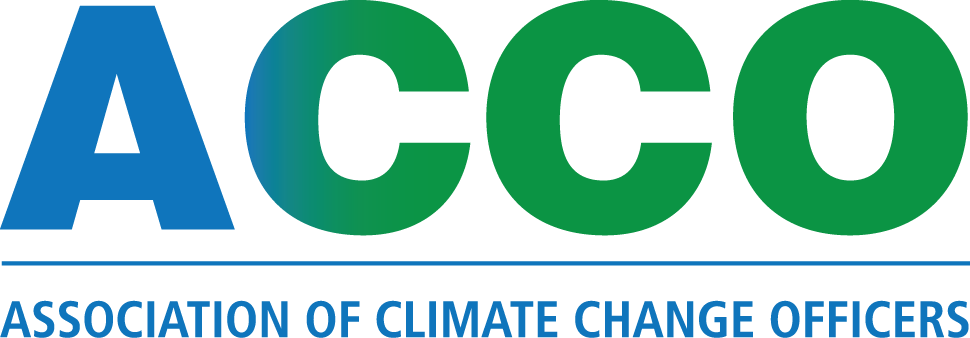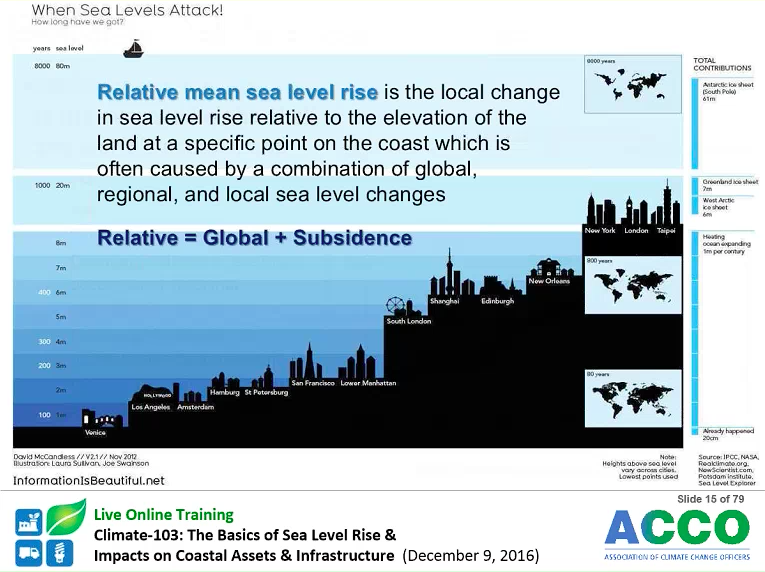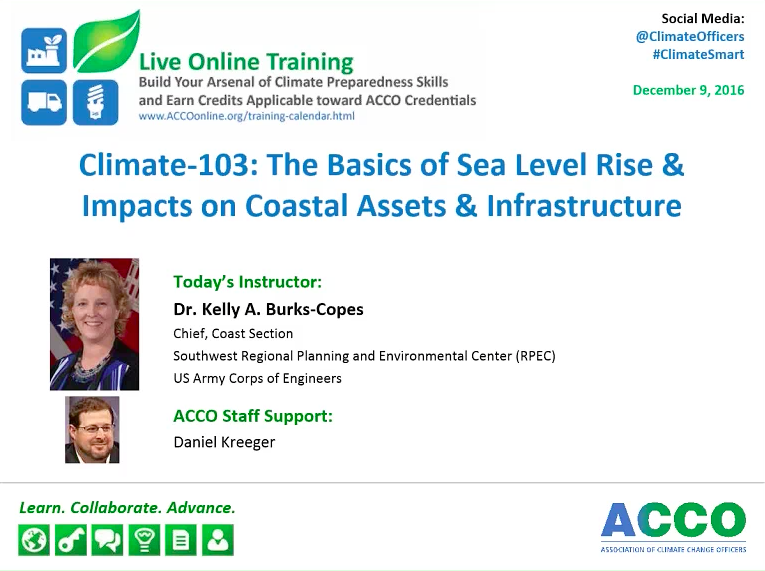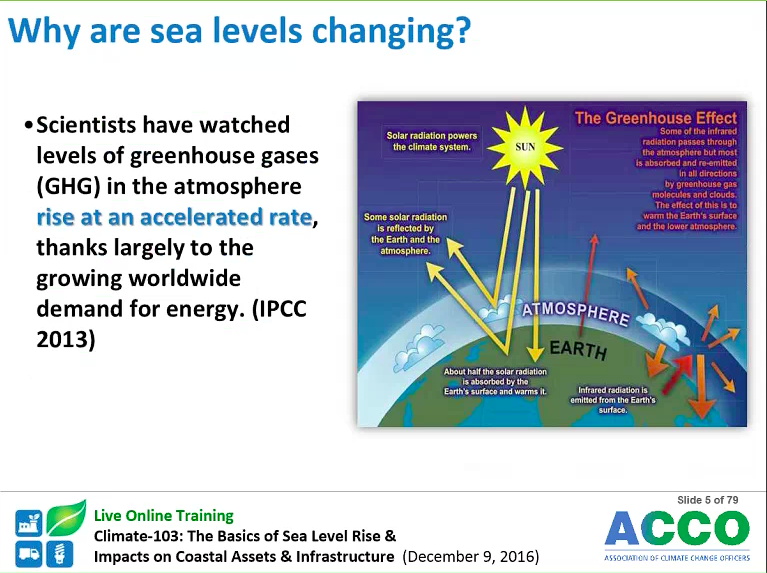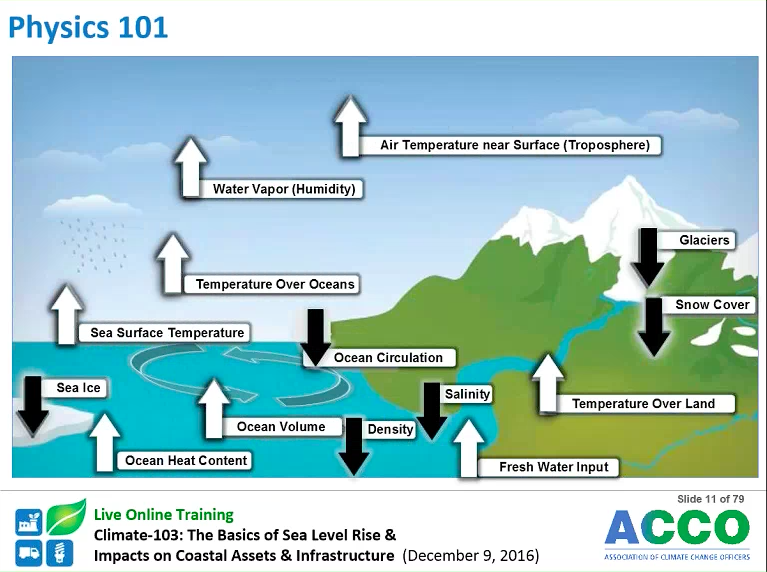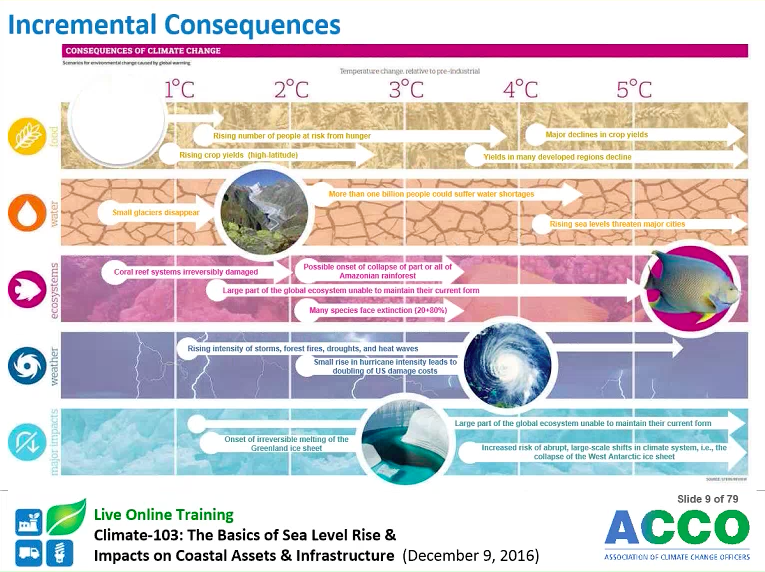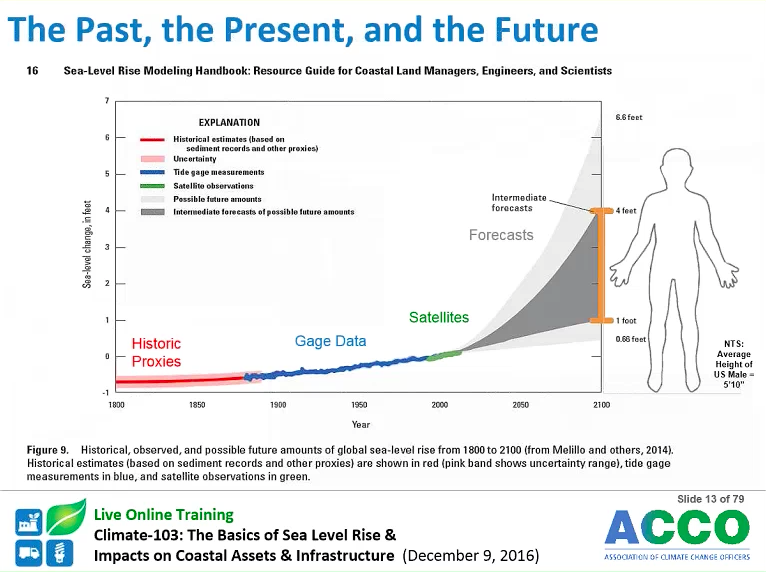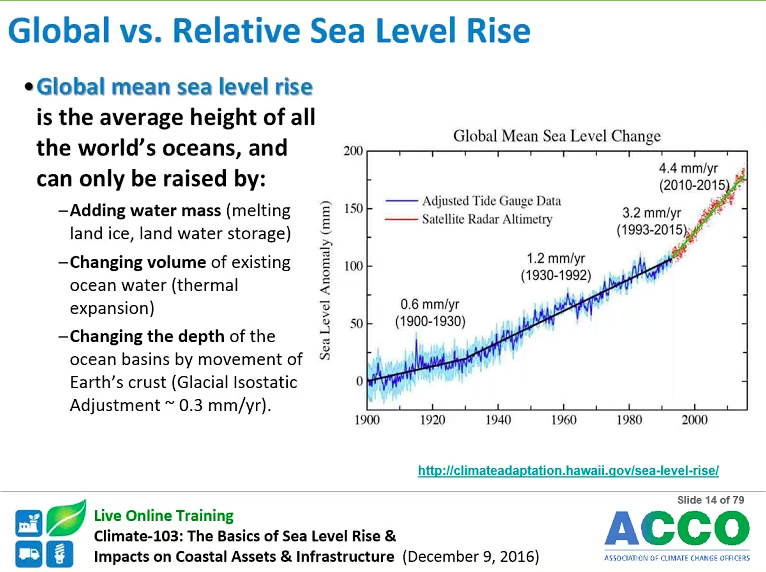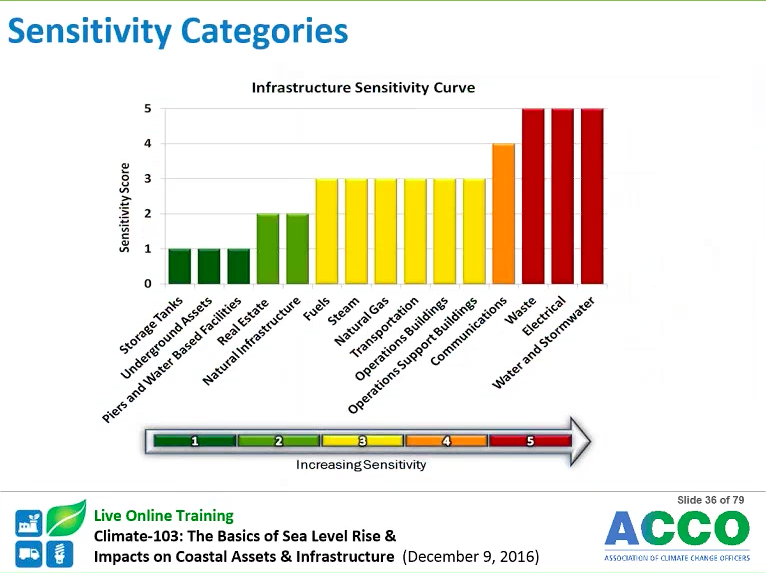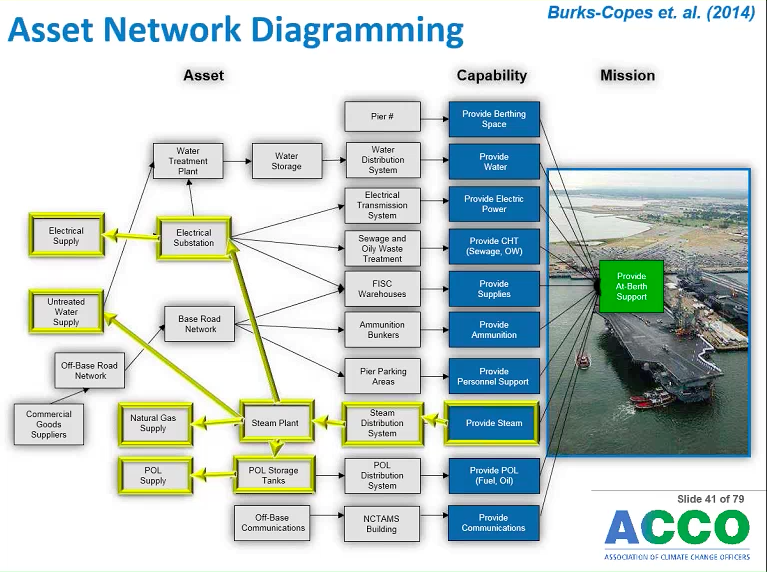Climate-103: Basics of Sea Level Rise & Impacts on Coastal Assets & Infrastructure
Recommended Exam Prep Course (Climate Science & Vulnerability Assessment)
Estimated Time: 1.75 hours
Scroll down and to the right to perform a free self-assessment on the Climate-103 module.
IMPORTANT NOTE: THIS MODULE WILL BE PHASED OUT ON MARCH 1, 2023 AND REPLACED WITH CLIMATE-105
For more information, please consult the transition guidance for the curriculum updates resulting from the publication of the CC-P Study Guide.
This course provides a basic overview of sea level rise in the context of climate change, including the basics of temporal and regional changes, the forcing mechanisms for sea level rise in the past and projections for the future. Attendees will gain a fundamental understanding of the observing systems used to measure sea level change, and how various government agencies are planning for the impacts of sea level rise. Learners will also get an overview of the concept of risk management in the face of sea level rise, looking at various adaptation strategies, and discussing the concept of how to build resilience. Attendees will participate in an instructor-led discussion on what steps they might take to help mitigate impacts of sea level rise in their communities.
Learning Objectives
- Gaining experience with water level measurement techniques, both coastal and global, and how the data they generate is merged and tracked over time
- Understanding recent sea level rise trends
- Using the latest visualization tools to explore sea level rise along the US coast
- Learning the basics of SLR vulnerability and coastal flood risk assessment techniques through real life examples from around the country
- Understanding impacts on coastal infrastructure in vulnerable areas
- Articulating the difference between storm surge and sea level rise
Course Architects
- David Behar – Climate Program Director, San Francisco Public Utilities Commission
- Alicia Betancourt – Director, UF-IFAS Monroe County Extension Director, University of Florida
- Scott Doney – Department Chair, Marine Chemistry & Geochemistry, Woods Hole Oceanographic Institution
- John Englander – Author, High Tide on Main Street: Rising Sea Level and the Coming Coastal Crisis
- Rebecca Flora – Sustainable Communities Practice Leader, Ecology & Environment
- Elizabeth Fly – Coastal Climate Extension Specialist, South Carolina Sea Grant Consortium
- Stephen Gill – Chief Scientist, Center for Operational Oceanographic Products and Services, U.S. National Oceanic and Atmospheric Administration (NOAA)
- Benjamin Hamlington – Assistant Professor, Ocean, Earth & Atmospheric Sciences, Old Dominion University
- Kristina Hill – Associate Professor of Landscape Architecture & Environmental Planning, University of California-Berkeley
- Richard Matthew – Professor of Planning, Policy & Design and Political Science, School of Social Ecology, University of California-Irvine
- Randall Parkinson – Senior Scientist and Division Director, Environmental Remediation & Recovery, Inc.
Click on the image above for a sample clip from the online training. To purchase on-demand access to this training course, click on the 'add to cart' button below.
Loading Self-Assessment (Climate-103)
